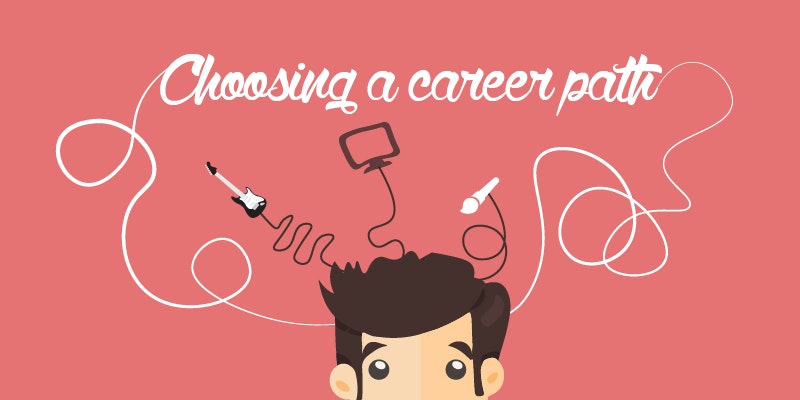The future is filled with so much potential but choosing the right study field and career path can be daunting. This is a particularly pressing challenge for many secondary education students as they must select a field of study and take the first steps towards their future career.
Too many people make the wrong choice and end up in careers ill-suited for them. A career is not just about money, but about realising your potential and ambition. Even though it’s increasingly likely to have more than one career during a lifetime, the time spent in that first career teaches valuable skills that can be applied in future positions. By selecting the right career, be it a full-time passion or a stepping stone, we empower ourselves in an incredible way.
Why do we make bad career choices? It’s often because we succumb to peer pressure or family pressure, or we feel obligated to follow market trends. To help you narrow the best career options, you should weigh the following:
● Aptitude,
● Academic Performance,
● Personality
● Passion, and
● Employment prospects.
Tips for the best career
Aptitude is the ability to do something. For example, if someone has a head for numbers or enjoys solving problems, they should consider careers that can use those abilities. Academic Performance is a good indication of those aptitudes, as well as levels of discipline.
Nearly every career involves working with other people, so understanding personality’s role is very important. This doesn’t mean being a people-person. Someone might be quite comfortable spending hours alone pouring over data, but it’s key to know which scenarios sound comfortable and which don’t. While one can enhance their personality with extra skills, ‘knowing yourself’ is a critical ingredient to finding a place in the world.
Don’t be afraid to ask: Many people complain about how they didn’t know what career choices they had, but the information is out there to be discovered. To learn about career choices, talk to people who already do those jobs.
The best tactic is to take action. Make a list of some potential careers and companies in those spaces. Then call them or use a business platform such as LinkedIn. Politely explain what you are looking for and see if someone will talk about their career. Many people are willing to give some of their time to help enlighten future minds.
Finally, a career should be based on employment prospects, namely what is and will be available in the market. This is a difficult choice for today’s students, facing a future where seemingly-modern jobs are rapidly being replaced by unknown choices. One thing the future will need is STEM (Science, Technology, Engineering and Mathematics) skills. So, choosing a career in STEM places you a step ahead.






